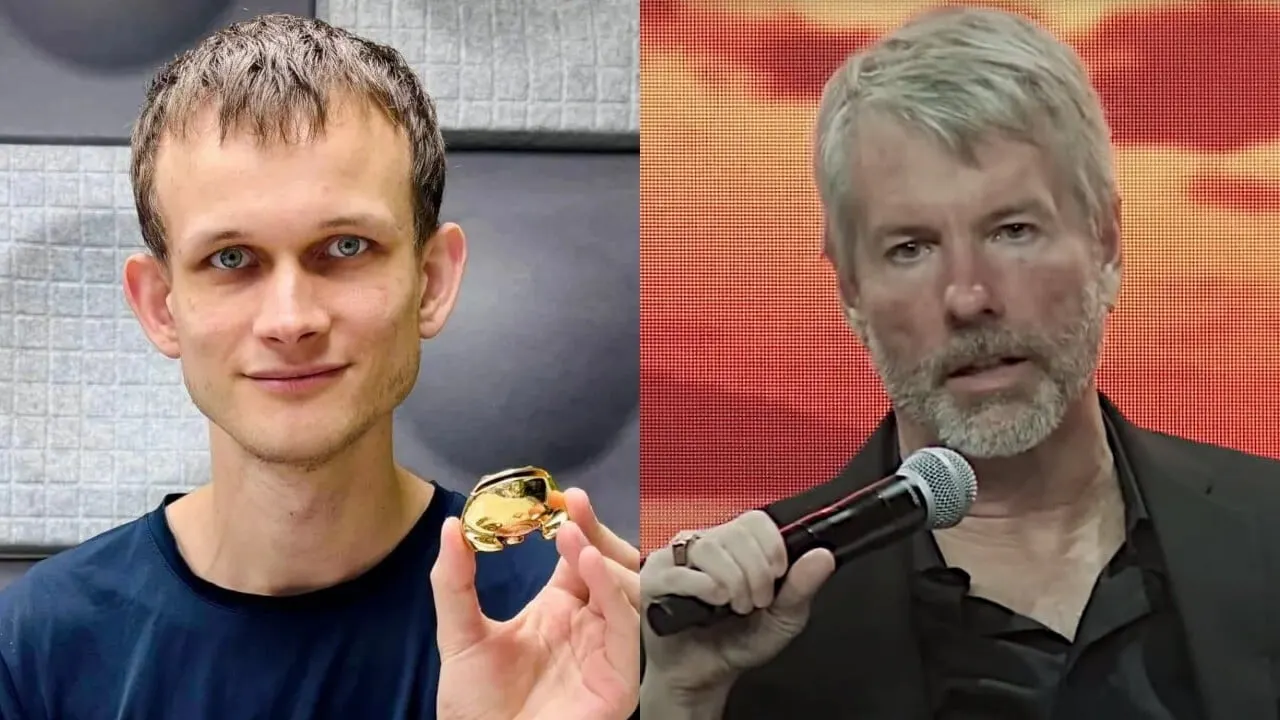Ethereum co-founder Vitalik Buterin has openly criticized MicroStrategy co-founder Michael Saylor's recent remarks on Bitcoin self-custody.
During a recent interview, Saylor was asked whether leaving Bitcoin custody to large banks and third-party entities poses a centralization risk, with the potential for government seizure of individuals’ crypto holdings.
The MicroStrategy co-founder responded that when Bitcoin is held by "paranoid crypto-anarchists" who do not acknowledge government regulations, the risk of seizure increases.
Buterin disagreed in a subsequent tweet. "I'll happily say that I think Saylor's comments are batshit insane,” he wrote, adding that Saylor “seems to be explicitly arguing for a regulatory capture approach to protecting crypto." The Ethereum co-founder also added that such an approach does not align with the core principles of cryptocurrency.
I probably did more than most to spread the "mountain man" trope (btw I consider those remarks of mine outdated; snarks and AA changed the tradeoff space completely), and I'll happily say that I think @saylor's comments are batshit insane.
He seems to be explicitly arguing for a…
— vitalik.eth (@VitalikButerin) October 22, 2024
What is self-custody?
Self-custody is the process of retaining control over one’s private keys, meaning that no outside party has access to your cryptocurrency wallet.
Because this approach involves a degree of inconvenience and risk —keys can be lost or stolen, with no redress—some users instead turn to third-party custody. This involves an independent custodian controlling the private keys to a wallet where the user’s crypto is held.
The risks associated with third-party custody are often summarized by the saying, "not your keys, not your coins," meaning that the third party has full control over the assets, and could—in theory—either freeze or appropriate them, or be pressured into doing so by the authorities.
The self-custody debate
Buterin was responding to a tweet by Jameson Lopp, cypherpunk and co-founder of Bitcoin self-custody platform Casa HODL, who shared his perspective on self-custody. Lopp emphasized that self-custody is essential not just for individual Bitcoin holders but for the network's overall health. "Self-custody is important for the continued strengthening and improvement of the entire network," he said.
Lopp explained how centralizing coins in a few wallets increases systemic risk of loss and seizure and disenfranchises users from running nodes or trading forks.
He also claimed that it would decrease development incentives since “institutions don't care about more advanced cryptographic features” and “permissionless scaling gets deprioritized because we can just scale via trusted third party.”
While Saylor seemingly disagrees, the movement for crypto self-custody is seemingly seeing renewed impetus ever since the collapse of the FTX crypto exchange in 2022. Back in May, Oklahoma became the first U.S. state to pass a law protecting the right to self-custody Bitcoin.
As executive chair of MicroStrategy, Saylor has pursued an aggressive strategy of acquiring Bitcoin for the company’s treasury. The company now holds over 1% of the Bitcoin that will ever be mined, with a dollar value of around $16 billion.
Earlier this month, Saylor outlined MicroStrategy’s plan to shift from being a software company to what he called a "Bitcoin bank" with a potential trillion-dollar valuation, by issuing securities backed by Bitcoin.

